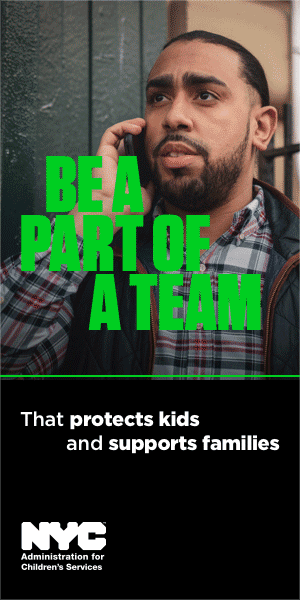Get Ready to Pay More for a NYCHA Apartment
NYCHA Rent Hikes Coming for Tenants Deemed ‘Over Income’
A NYCHA Housing complex at 344 E. 28th St. | Hiram Alejandro Durán/ THE CITY
By Greg B. Smith, The City
This article was originally published on by THE CITY
NEW YORK - The New York City Housing Authority has begun notifying hundreds of tenants with take-home pay deemed to be “over income” that they’ll have to pay higher rent and will no longer be listed as public housing residents, THE CITY has learned.
Last week NYCHA mailed notices to 290 households containing about 741 residents where the authority has determined their take-home pay for the last two years was 120% of the area median income for New York City. That translates to $118,000 for a single-tenant household and $160,000 for a family of four.
All “over income” tenants will also have to start paying for utilities, a cost NYCHA currently covers for almost all its tenants.
NYCHA is taking this step under new protocols mandated by the U.S. Department of Housing and Urban Development (HUD), the federal agency that provides NYCHA with most of its funding.
By NYCHA’s calculations, a single renter now paying $1,700 for a one-bedroom unit will now have to pay $2,170 — a 27% increase, or about $470 a month more, plus utilities. A family would see the rent of a four-bedroom unit jump from $2,653 to $3,316 — a 25% spike, or about $663 more per month, plus utilities.
The higher rents are still lower than what most New York City renters pay because they are based on HUD’s calculation that sets the rent price at the 40th percentile for “fair market rent” in the New York metro area.
The targeted tenants were told they have 60 days to sign new leases and pay the higher rent. Tenants can contest the income determination, but if they refuse to sign the lease, NYCHA will move to evict them.
The protocols — which went into effect last week — affect public housing authorities nationwide. On Thursday Olga Alvarez, a spokesperson for HUD Secretary Marcia Fudge, could not say how many tenants deemed to be “over income” nationwide will face higher rents going forward.
A Massive Waiting List
The change comes at a time when there is a desperate need for affordable housing in New York City. NYCHA currently has a waiting list of 250,000 applicants, and thousands of public housing tenants stopped paying rent during the pandemic and did not start back up again once a state-ordered moratorium on rent collection ended in January 2022.
Speaking with THE CITY, Brad Greenburg, NYCHA’s chief compliance officer, noted that HUD allows public housing authorities to immediately terminate any tenant deemed to be over income for two consecutive years. NYCHA decided not to do that, offering the “fair market rent” instead.
If tenants do not accept the new rent, however, NYCHA will move to evict them within six months of the notification.
“We’re hoping people will sign the lease, but it is an increase in rent so it is kind of a double bind,” Greenburg said. “I’m not trying to sugarcoat this.”
Public housing sets certain income limits on who’s eligible for an apartment. In the past, once an eligible tenant moved in, they could stay even if their income rose to a level above the eligibility cutoff. Traditionally, public housing tenants paid no more than 30% of their income for rent.
The effort to push “over income” tenants off the public housing rolls started with passage of the Housing Opportunities Through Modernization Act in 2016 during President Barack Obama’s tenure. The act gave housing authorities time to work out protocols to handle this mandate, and June 14 was the deadline for the new rules to take effect.
The rules as NYCHA applies them seek to balance the need for tenants with lower incomes to gain access to the scarce inventory of public housing apartments without unduly punishing those residents whose incomes happened to rise after they began living at NYCHA.
Once an “over income” tenant is off the rolls, they would have to start over and reapply to get back in NYCHA, should their income drop again and make them eligible. But because the waiting line is so long, they would effectively have to keep paying the fair market rent while awaiting an open apartment.
Also, tenants removed from the public housing rolls will no longer be eligible to participate in a program known as Section 3 that provides job training and jobs to NYCHA residents. And they will not be able to participate in their development’s tenant council.
Going forward, determination of who is “over income” is tied to the area median income (AMI) set by HUD each year that takes inflation into account. In fiscal year 2023, for instance, 120% of AMI for the New York City metro area for a single adult was $112,000. In April, it changed to $118,000.
That’s also true for the level of “fair market rent,” which changes at the beginning of each federal fiscal year. That means in October, the current New York City area “fair market rent” for a one-bedroom of $2,170 will likely rise even higher.
THE CITY is an independent, nonprofit news outlet dedicated to hard-hitting reporting that serves the people of New York.














Comments
Post a Comment